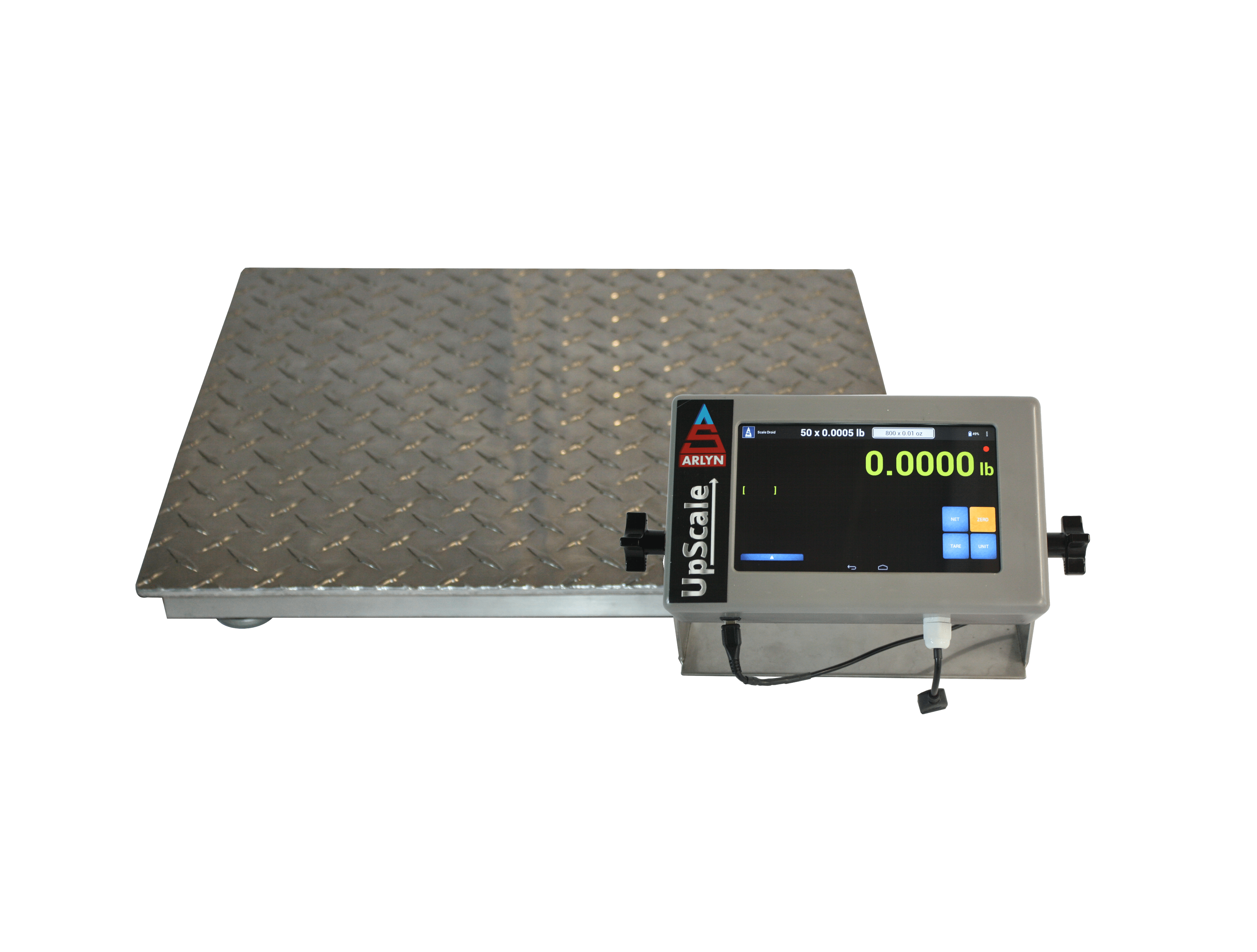Digital vs. Analog Industrial Scales: What You Need to Consider
Digital vs. Analog Industrial Scales: What You Need to Consider
Blog Article
Why Industrial Scales Are Vital for Maximizing Warehouse Procedures
Industrial scales play a pivotal function in optimizing stockroom procedures by supplying precise weight dimensions that are essential for efficient stock administration and streamlined delivery procedures. The true effect of industrial scales extends past mere accuracy-- understanding their broader effects could transform functional methods in unanticipated methods.
Enhanced Precision in Weighing
In several storage facility operations, accomplishing boosted accuracy in weighing is crucial for the total effectiveness and integrity of stock management. Precise weighing allows for exact tracking of product amounts, which is essential for keeping ideal stock degrees and decreasing waste. Industrial ranges developed for storage facility environments supply high levels of accuracy, thus lowering the margin for error in inventory assessments.
Carrying out sophisticated weighing modern technology, such as digital ranges with calibration attributes, guarantees that weights are continually exact throughout various tons. This accuracy is specifically essential when taking care of high-value products or bulk materials, as disparities can bring about significant economic losses. Exact evaluating contributes to conformity with industry laws, which frequently mandate specific dimension for safety and quality guarantee.
Furthermore, improved weighing precision enables far better decision-making relating to logistics and supply chain administration. With specific information handy, stockroom supervisors can forecast demand more successfully, plan for replenishment, and optimize storage room utilization. Inevitably, the assimilation of precise industrial ranges right into storehouse operations sustains not only instant functional needs but additionally long-term tactical objectives focused on enhancing total efficiency and productivity.
Boosted Supply Monitoring
Reliable stock management is necessary for maximizing warehouse procedures and ensuring that resources are used successfully. Industrial ranges play a critical role in this procedure by providing precise weight measurements that straight influence supply tracking and control. By incorporating these scales right into inventory administration systems, stockrooms can attain real-time information precision, which is important for preserving ideal stock levels.
The capability to evaluate items precisely permits better projecting and replenishment approaches. With accurate weight information, storehouse managers can determine discrepancies between anticipated and actual stock levels, thereby minimizing overstocking or stockouts. This accuracy additionally assists in classifying items according to weight, which can enhance storage efficiency and simplify order selecting procedures.
In addition, enhanced stock management promotes far better vendor partnerships and customer complete satisfaction. Precise weight dimensions promote compliance with delivery guidelines and lower the chance of pricey errors throughout the purchase procedure. In essence, industrial scales not just improve the precision of supply records yet additionally add to total operational performance, inevitably bring about lowered prices and boosted service distribution in warehouse operations.
Streamlined Delivery Processes
A considerable aspect of warehouse performance is the streamlining of delivery procedures, which can substantially improve overall performance and consumer contentment. Efficient shipping procedures ensure that items are dispatched accurately and visite site in a timely manner, directly impacting customer experience and retention.

Moreover, incorporating commercial scales into warehouse monitoring systems assists in real-time tracking of stock and shipments, boosting transparency throughout the shipping procedure - Industrial Scales. This combination not just quickens the fulfillment cycle but also boosts communication amongst staff, bring about quicker decision-making and less traffic jams
Additionally, structured shipping procedures can minimize labor costs, as teams can function more effectively with clear standards and accurate information at their fingertips. By taking on industrial ranges, storehouses can attain a much more organized strategy to shipping, ultimately boosting their functional performance and supporting a more powerful profits.
Waste Decrease Approaches
Maximizing warehouse procedures extends beyond streamlined shipping procedures to include waste reduction methods that substantially contribute to general efficiency and cost-effectiveness (Industrial Scales). Applying industrial scales is a pivotal aspect of these approaches, making it possible for specific measurement of products and products, which lessens excess and reduces excess inventory

One more vital method is the optimization of packaging. Industrial scales help with accurate weight dimensions, enabling tailored packaging solutions that lessen excess products. This not only lowers waste however also reduces delivery costs, as lighter plans often incur reduced products costs.
Data-Driven Choice Making

Utilizing data generated from industrial ranges enables storage facility supervisors to track stock degrees much more properly, bring about informed purchasing decisions and lessening overstock or stockouts. In addition, this information can be examined to determine patterns in item activity, enabling far better forecasting and source allocation.
The understandings obtained from weight data also help with efficiency measurement versus key performance signs (KPIs), such as throughput rates and order precision. By using advanced analytics, stockroom operations can uncover ineffectiveness, streamline operations, and reduce functional costs.
Eventually, data-driven choice making empowers companies to make proactive adjustments, guaranteeing that stockroom procedures stay responsive and nimble to market needs. Investing in industrial ranges not only enhances information collection yet likewise transforms that data into workable knowledge, placing warehouses for sustained competitiveness and development.
Conclusion
In recap, commercial scales play an important role her explanation in optimizing warehouse operations via improved accuracy in considering, enhanced supply administration, and structured delivery processes. The combination of industrial ranges right into stockroom administration systems is thus paramount for accomplishing ideal performance and resource appropriation.
Industrial scales play a crucial function in maximizing stockroom procedures by supplying precise weight measurements that are essential for reliable supply administration and streamlined delivery processes. Industrial scales made for storehouse environments offer high levels of precision, thus minimizing the margin for error in stock assessments.
In significance, industrial ranges not only enhance the precision of stock documents but likewise add to general functional performance, inevitably leading to lowered costs and enhanced solution distribution in warehouse operations.
In summary, industrial ranges play a crucial duty in maximizing storage facility procedures with boosted precision in considering, enhanced supply administration, and structured delivery procedures. The integration of industrial ranges into storage facility administration systems is hence vital for attaining ideal efficiency and source allocation.
Report this page